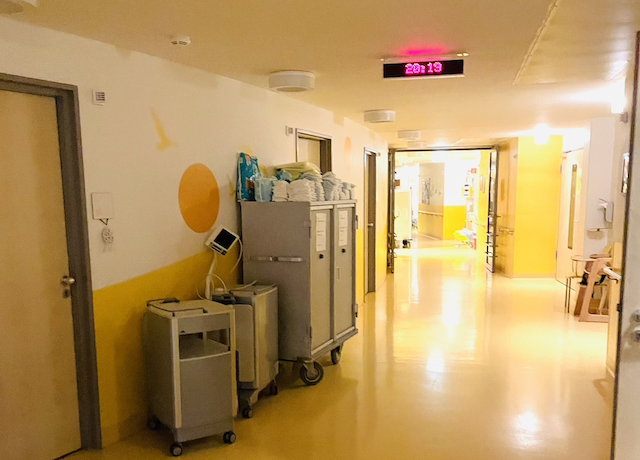COVID-19 had no Impact on Misscarriage in Israel
Study Finds No Increase in Miscarriage Rate in Israel During COVID-19 Pandemic
Despite the mental stress caused by the pandemic and possible infection with COVID-19, no significant change was found in a study.
A recent study conducted at the Technion-Israel Institute of Technology and the University of Haifa has found that the COVID-19 pandemic did not affect the rate of spontaneous abortions, commonly referred to as miscarriages, in Israel. The study, which collected data from 252,858 members of Meuhedet Health Services aged 15 to 44, was conducted between March 2020 and the end of the third wave of the pandemic in April 2021.
The researchers expected to find an increase in the rate of spontaneous abortions due to the mental stress caused by the pandemic and possible infection with COVID-19. However, no significant change was found in the rate of abortions during the study period. According to Prof. Stephen Levine of the Faculty of Social Welfare and Health Sciences at the University of Haifa’s School of Public Health, “Either way, the findings show that there was no significant change in the rate of abortions.”

Spontaneous abortions are natural abortions that occur during the first 20 weeks of pregnancy and are related to various factors, including chromosomal problems in the fetus, exposure to certain substances, infections during pregnancy, and other environmental factors that affect the pregnant person. Between 11% and 20% of known pregnancies end in spontaneous abortion.
The pandemic was a complex event with bio-psychological characteristics that could have caused widespread social trauma, and it could have affected the rate of spontaneous abortions. In a study published in the journal JAMA Network Open, the researchers sought to characterize the relationship between the epidemic and the rate of spontaneous abortions in Israel.
The research was conducted by Dr. Yael Travis-Lomer and Prof. Yair Goldberg from the Faculty of Data and Decision Sciences at the Technion, Prof. Arad Kodesh from the Meuhedet health fund and the department of community mental health at the University of Haifa, Prof. Abraham Reichenberg and Prof. Sven Sandin from the Department of Psychiatry at Mount Sinai Hospital in New York, and Prof. Sofia Frango from the psychiatry department at the University of British Columbia.
To examine the effect of the pandemic on the rate of abortions in Israel, possible trends before and during the pandemic, as well as seasonal effects, were taken into account. The results of the study showed that no change was observed in the rate of spontaneous abortions during the three waves of the virus in Israel. The monthly rate of spontaneous abortions ranged from 20% to 25% of reported pregnancies before the pandemic, and during the pandemic, this rate ranged from 20% to 26.5%. When the researchers compared the rate of spontaneous abortions during the pandemic period to the expected rate of abortions for that period, a slight increase in the rate of spontaneous abortions was found, but this increase was not statistically significant.
“Although the monthly rate of spontaneous abortions remained stable during the entire study period, it is possible that this rate will change in the future depending on other factors. We must continue to monitor this figure in the near future,” the researchers concluded.
Despite the pandemic causing significant anxiety among pregnant women, the study suggests that it did not have a significant impact on the rate of spontaneous abortions. The lockdown policy that forced people to stay at home may have even lowered the rate of spontaneous abortions due to the lower-than-usual physical exertion. However, the researchers caution that the rate of spontaneous abortions may change in the future, and it is necessary to continue monitoring this figure closely.





